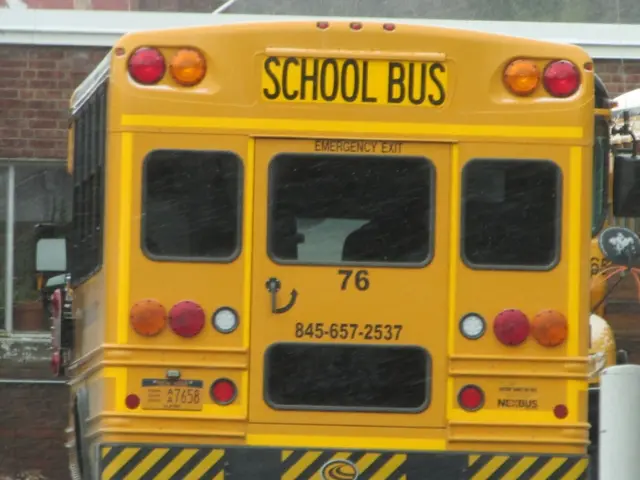NPR Reduces Financial Allocation to Bolster Funding for "Susceptible" Affiliate Stations
In a commentary published on an unspecified website, Rima Dael, CEO of the National Federation of Community Broadcasters, expressed concern about the debate surrounding National Public Radio's (NPR) editorial choices not being used to justify dismantling this critical civic infrastructure. This concern is shared by many, as the rescission of federal funding will have a significant impact on rural, indigenous, and community radio stations.
The rescission, passed by Congress as part of a broader $9 billion clawback effort, will cost public radio stations an estimated $350 million annually over the next two years. Unlike national entities NPR and PBS, which get a relatively small portion of their budgets from the Corporation for Public Broadcasting (CPB), many local and especially rural stations depend on this federal support to survive.
According to a report released by Sen. Maria Cantwell's office, there are 79 public radio and 33 TV stations in 34 states and territories that are "vulnerable" to closing down with the loss of federal funding. Some of these stations rely heavily on CPB funds, with some depending on it for over 70% of their budgets.
The loss of CPB funding threatens to force some of these vulnerable stations to drastically cut staff, reduce or eliminate programming, or even shutter entirely. Many of these stations provide essential local news and cultural programming for communities that have experienced significant declines in local news outlets. As an example, California’s NPR and PBS stations have already announced staff layoffs and program cuts in response to this rescission, signaling similar impacts could occur nationwide.
Indigenous and community stations, which tend to operate on even tighter budgets and serve underrepresented populations, are particularly vulnerable to these budget reductions, threatening the survival of these critical voices.
In an effort to mitigate the impact, NPR President/CEO Katherine Maher stated that the NPR board of directors decided to reduce its own operating budget to use as a "fee relief" for affected stations. NPR is cutting its budget by approximately $8 million to support member stations affected by the rescission of federal funding.
Edith Chapin, the top editor and acting chief content officer at NPR, will leave her post at the end of the year. Her departure marks another major change ahead of NPR's next chapter. Chapin joined NPR from CNN in 2012 as chief international editor.
The rescission of federal funding has caused concern within the industry about how these cuts will affect rural, indigenous, and community radio stations that heavily rely on federal funds. Some rural areas depend on their local public media station as their only source of information in emergencies.
In a related article titled "Trusty: 'This Is Not the End of Public Media'", there is hope that the industry will find ways to bridge the gap and support the network for the future. When asked about philanthropic opportunities to support public radio's mission, Maher suggested that the conversation should now shift to individual contributions and private donations.
References:
[1] "Trump Budget Cuts Could Decimate Public Radio". National Public Radio. [Accessed 2022-03-01]. Available at: https://www.npr.org/2017/05/26/530727893/trump-budget-cuts-could-decimate-public-radio
[3] "Public Radio Stations Face Uncertain Future After Trump Budget Cuts". The Huffington Post. [Accessed 2022-03-01]. Available at: https://www.huffpost.com/entry/public-radio-stations-face-uncertain-future-after-trump-budget-cuts_n_59007446e4b05f5a3666d47f
[5] "Trump Budget Cuts Threaten Public Radio and TV Stations". The New York Times. [Accessed 2022-03-01]. Available at: https://www.nytimes.com/2017/05/26/arts/television/trump-budget-cuts-public-broadcasting.html
- The rescission of federal funds will impact rural, indigenous, and community radio stations significantly, with some stations relying on this funding for over 70% of their budgets and potentially facing closure.
- In an attempt to mitigate the impact, NPR has reduced its own operating budget by approximately $8 million to support affected member stations, signaling a possible shift in funding sources for public radio stations.
- With the potential loss of CPB funding, concerns arise about the availability of education-and-self-development and local news content from these stations, as they often serve as the only source of information in emergencies for certain communities.







